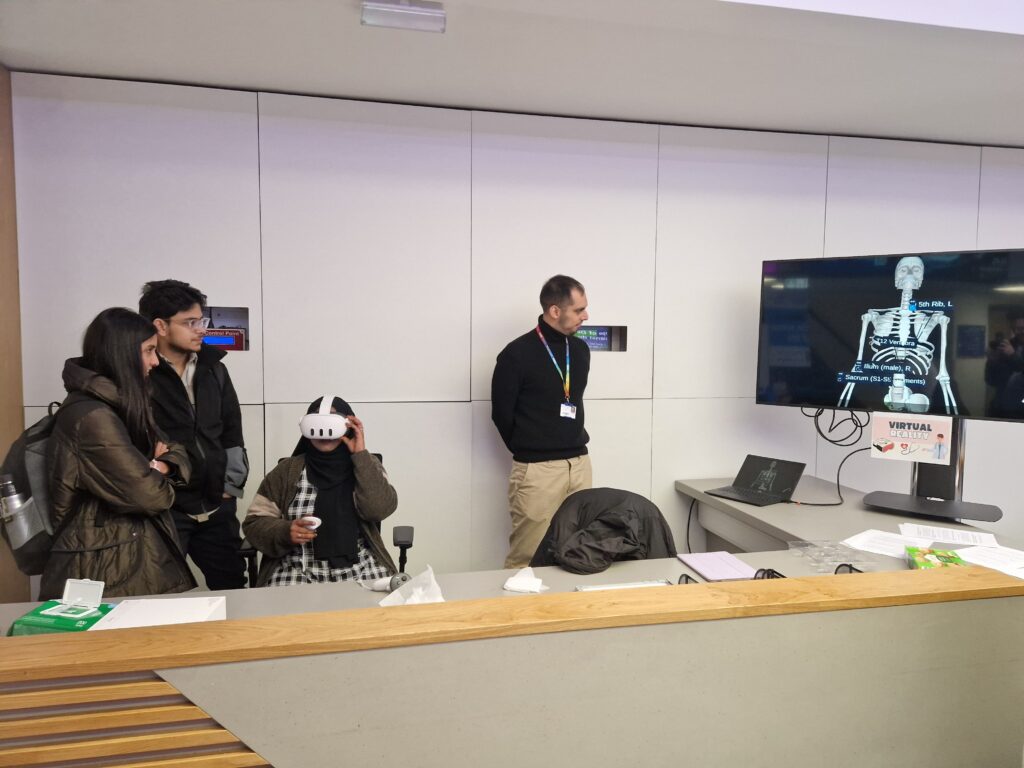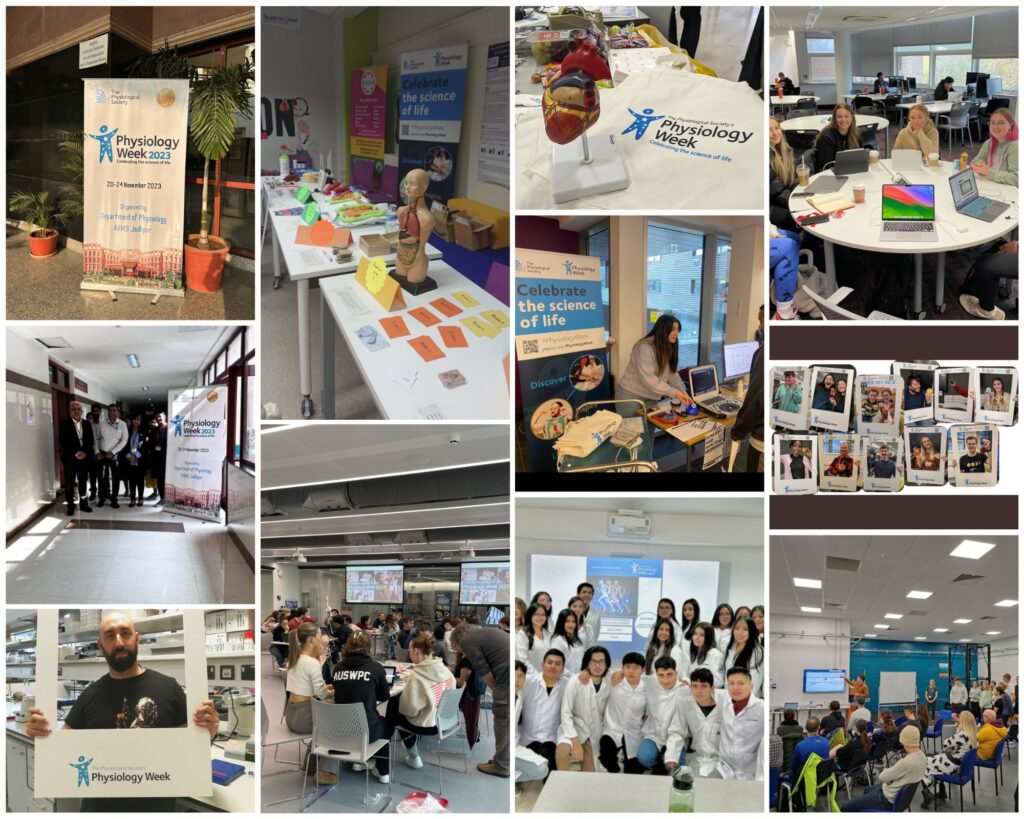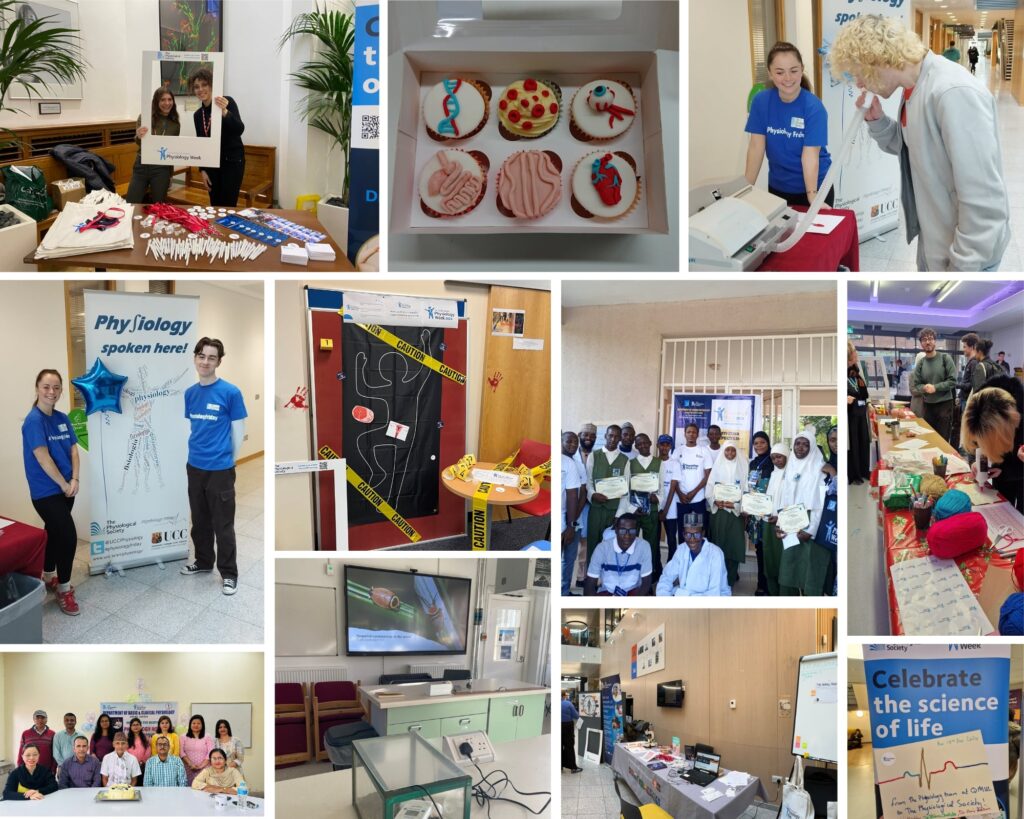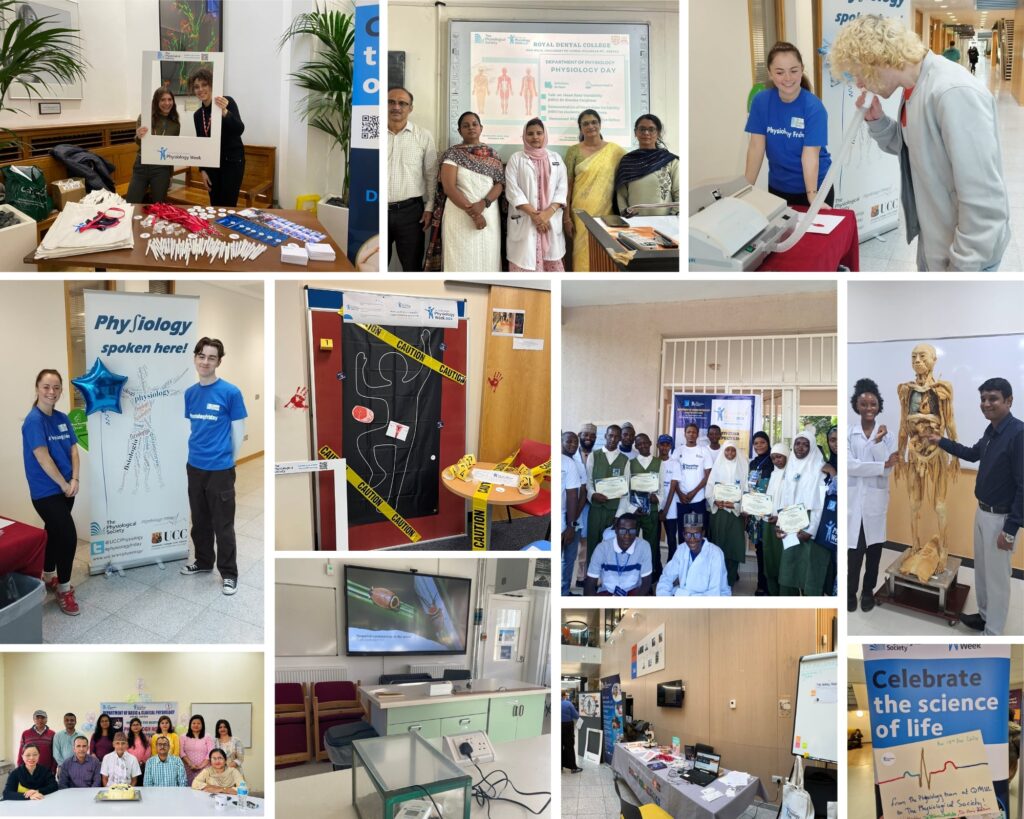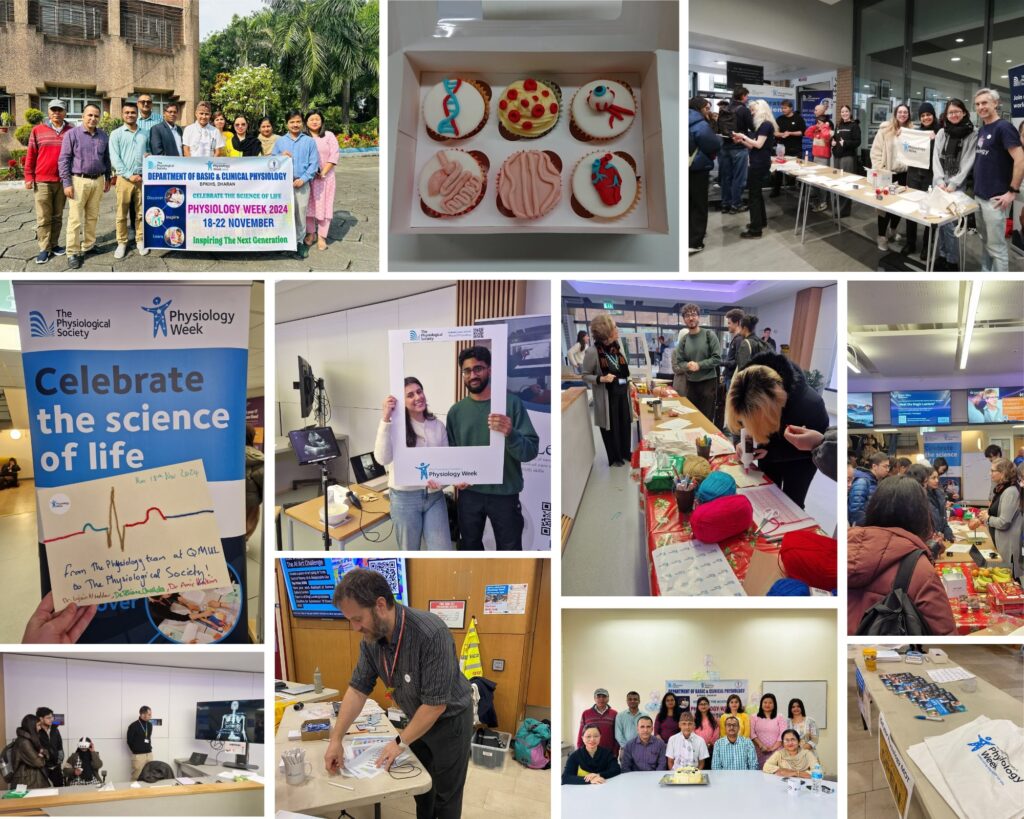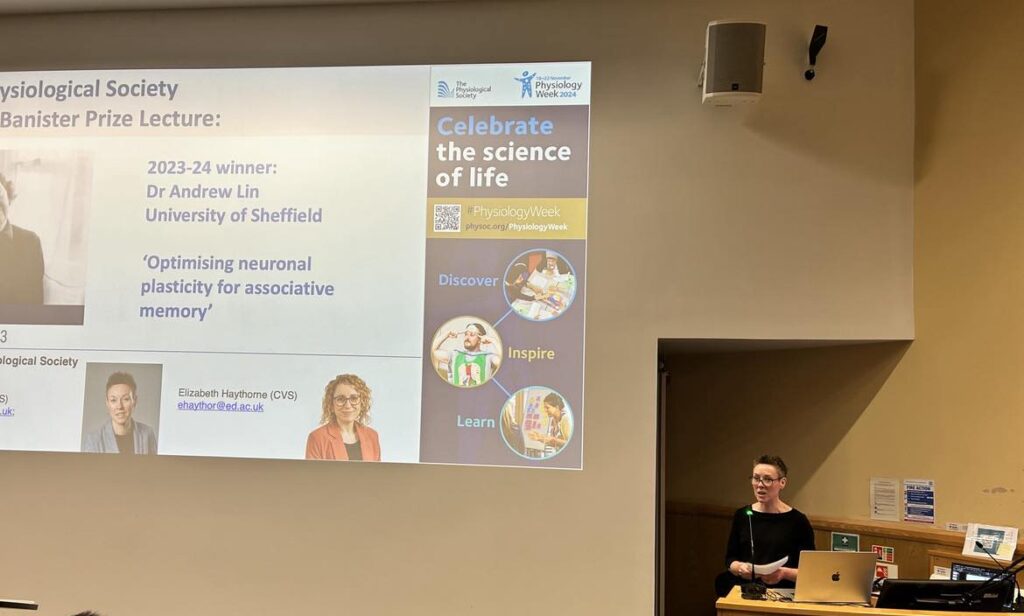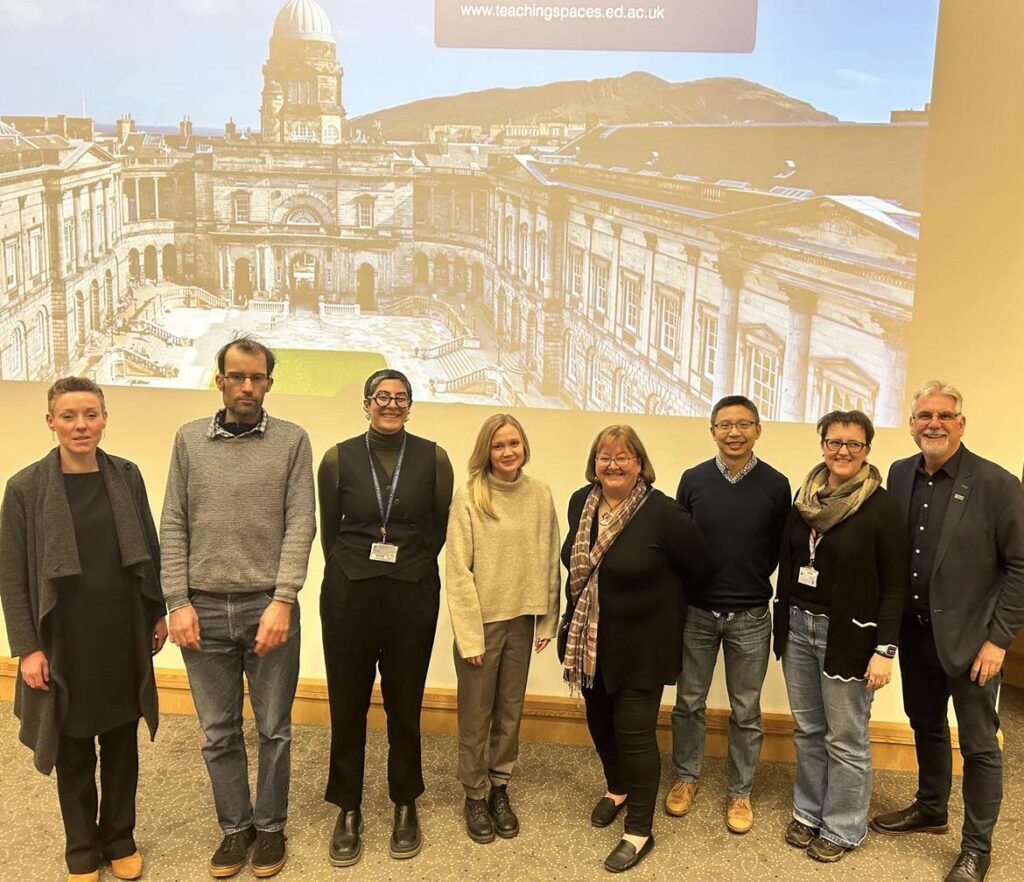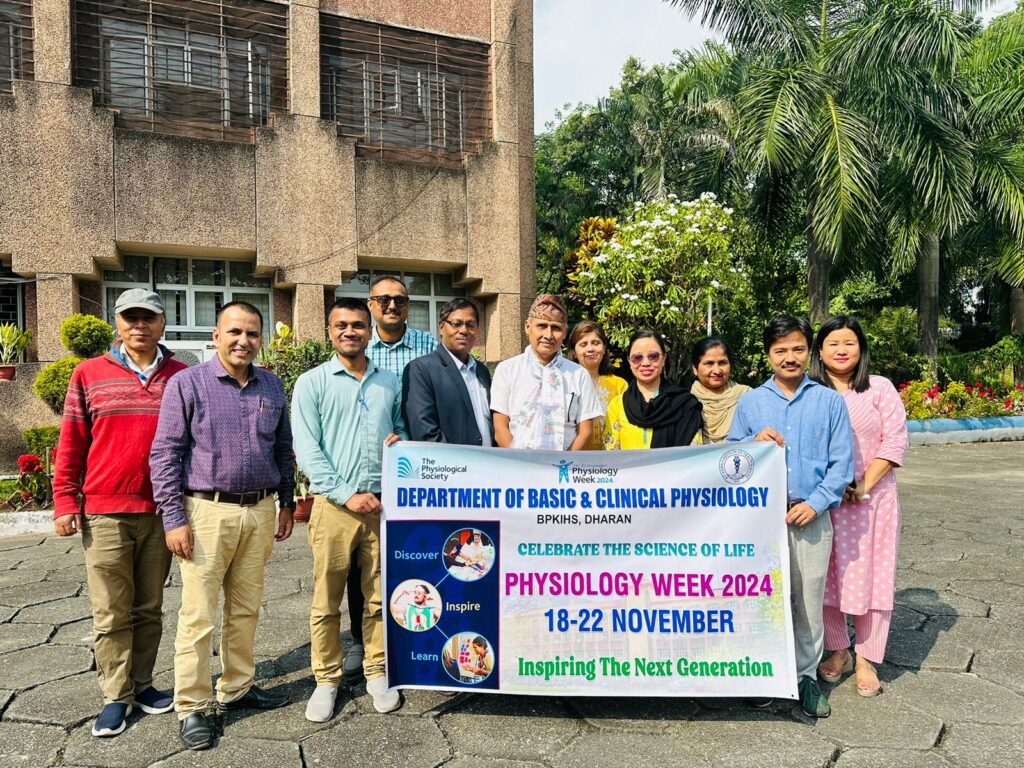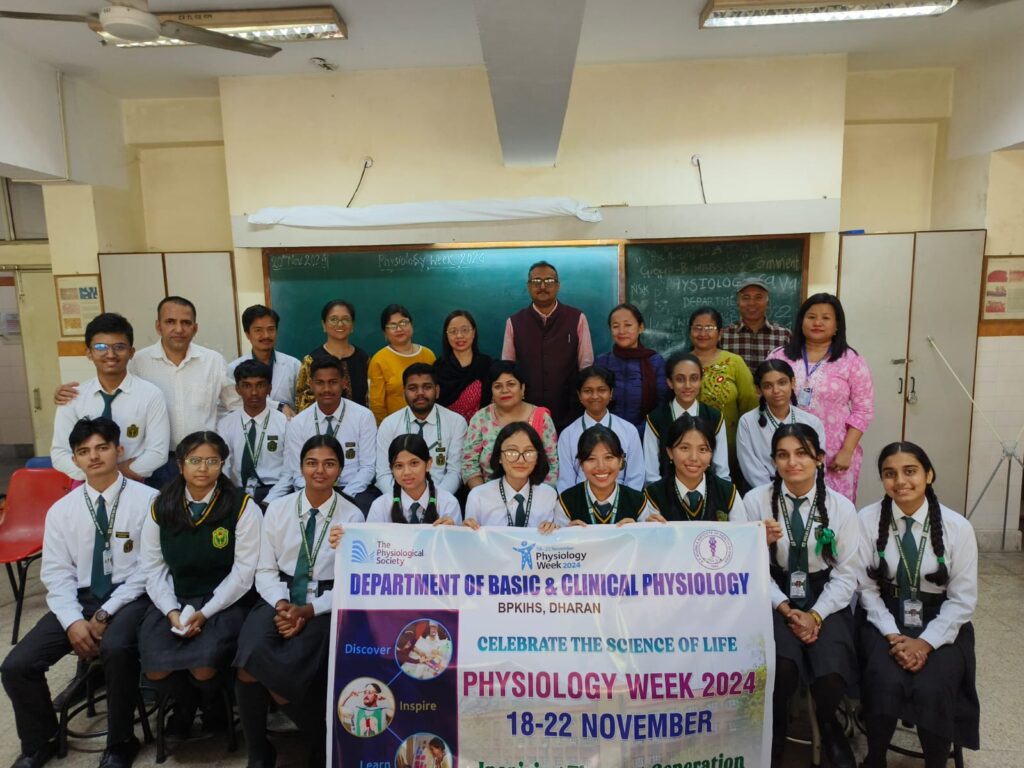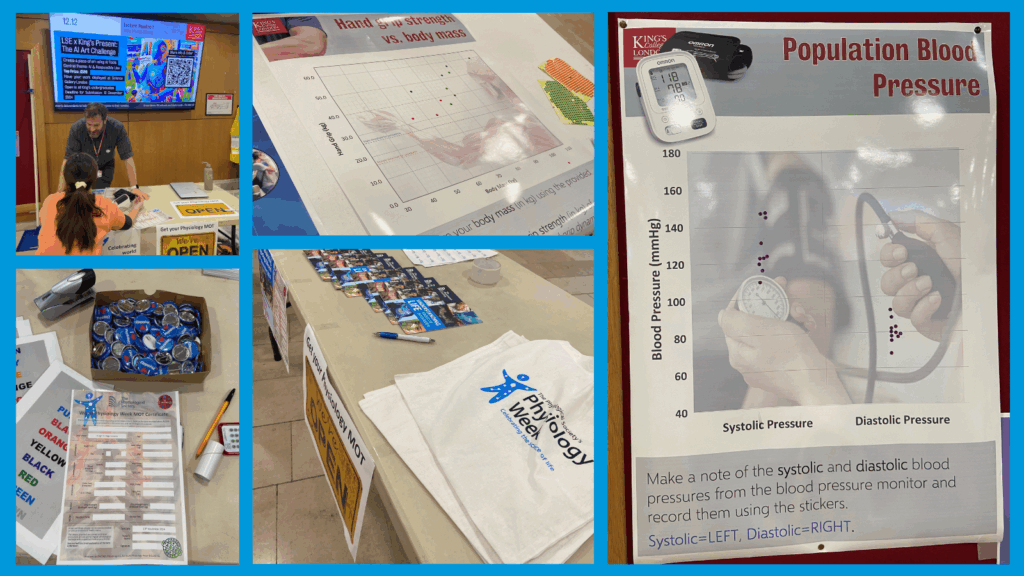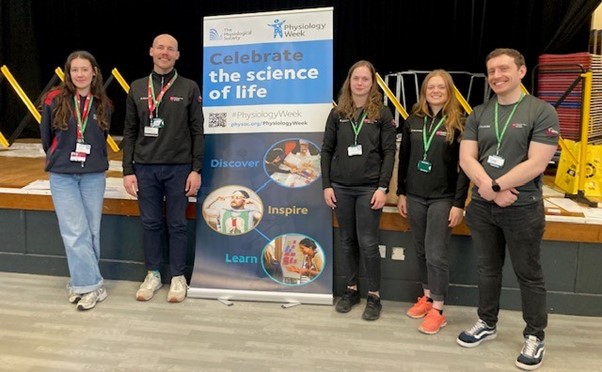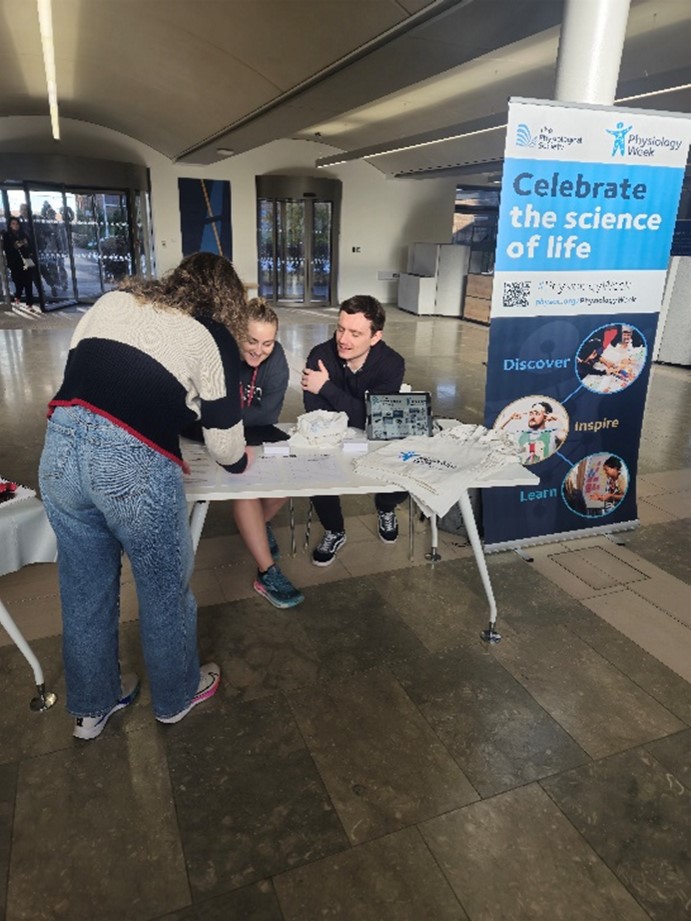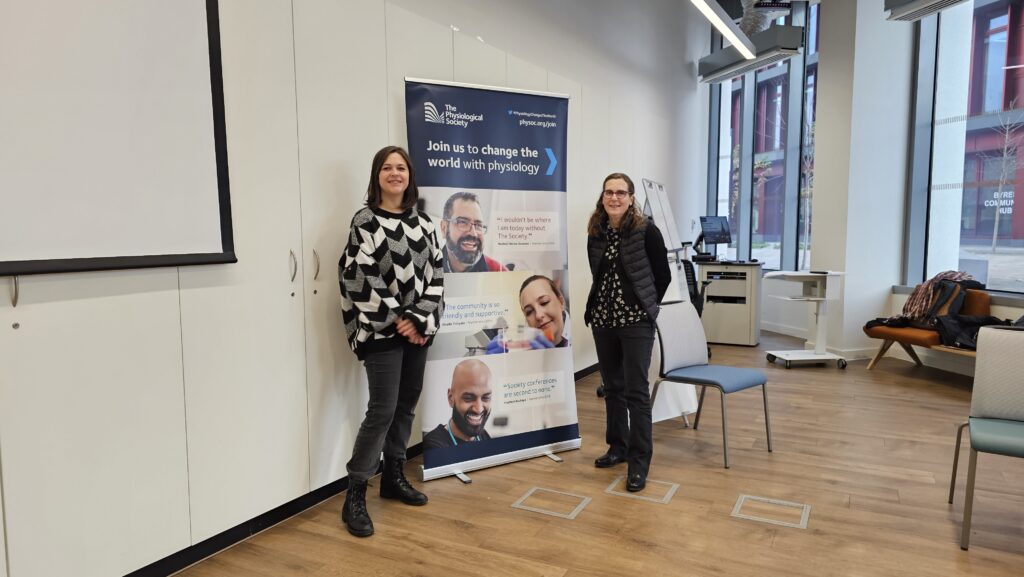As 2023 draws to a close, our Chief Executive, Dariel Burdass reflects on a successful year.
As we approach the end of 2023, it is a perfect moment to look back on what has truly been a remarkable year for The Physiological Society. The successes of 2023 stand as a testament to the collective and collaborative endeavours of our dedicated staff, trustees, and the global community of volunteers. Together, they have contributed to various roles ranging from – serving on committees, serving on editorial boards, participating in expert panels, and engaging in Society projects that resonate with the Society’s mission.
In recognising that our true strength lies in unity, we have embarked on a transformative journey with the launch of our Equity, Inclusion, and Diversity Roadmap. This strategic framework ensures that our activities resonate with diverse perspectives, cultures, backgrounds, and experiences. By embracing diversity, we acknowledge that our collective impact far surpasses the sum of individual efforts. It is through teamwork, bound by our unwavering commitment to inclusivity, that we have achieved significant milestones and played a pivotal role in shaping the future of physiology.
The year commenced with the launch of our new strategy calling on physiologists: worldwide to come and help us change the world. While today’s world differs vastly from that of 1876, our core charitable objects remains unchanged: to promote for the benefit of the public the advancement of physiology and support and inspire our community to advance the physiological sciences.
Our new strategy which runs from 2023-2027, outlines a clear vision for a world in which physiological discovery leads to healthier lives. We will achieve this by harnessing the power of our community and inspiring the next generation through our leading journals, world class scientific events and influential policy.
Our strategy is centred around three pillars, strengthening the physiology community, securing the future of the discipline, and using physiological evidence to improve public health.
In order to achieve these we established five clear priorities for the strategy period:
- Growing membership, with greater diversity
- Supporting the careers of physiologists
- Strengthening links across physiology
- Shaping public policy
- Improving our sustainability
Our community: a vibrant and rich legacy spanning nearly 150 years
Since our foundation in 1876, our members have been at the heart of the Society.
This year we saw the Society bucking the trend of many member organisations as our numbers of Full and Fellow members increased – up 4% since the start of the year. We have improved our offering to members including exclusive member benefits, enhanced our member communications by delivering more relevant and targeted content, overhauled our systems and ran an engaging membership campaign, #PhysiologyChangesTheWorld.

We continue to celebrate our rich history through our commemorative Blue Plaque scheme which honours outstanding physiologists who have contributed to the advancement of the discipline through their discoveries while leaving a legacy beyond their lifetime. The unveiling of Blue Plaque is seamlessly integrated into our Member Roadshow, a multifaceted initiative designed to re-engage with our members in their respective institutions.
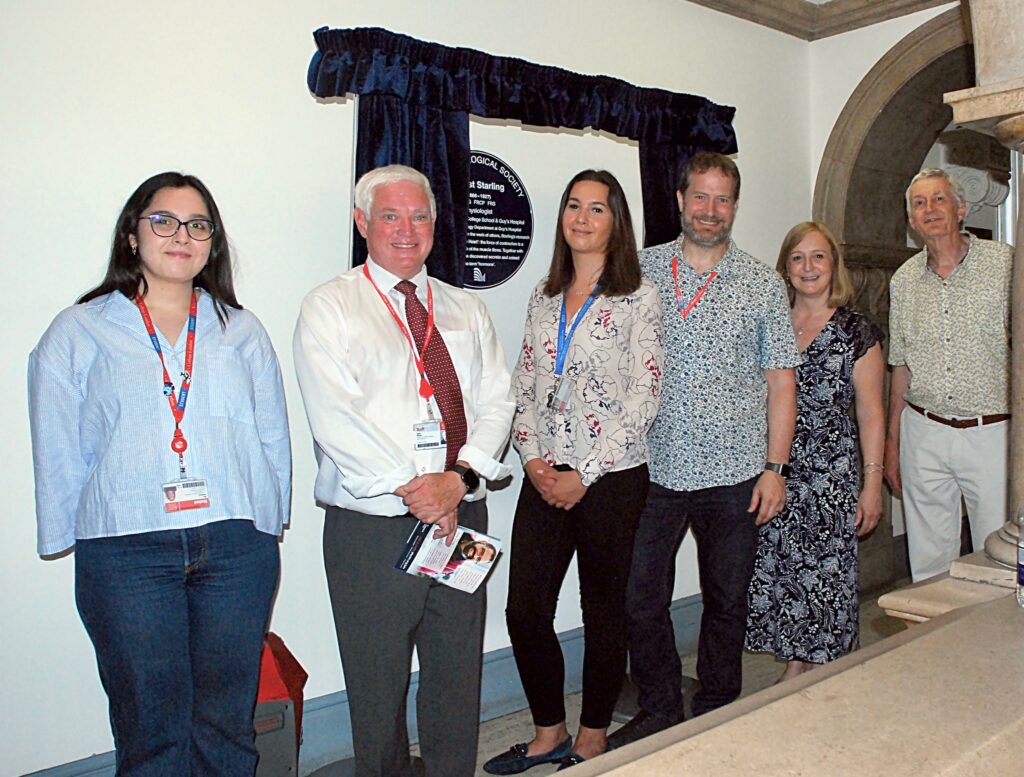
The Member Roadshow serves as a dynamic platform, fostering community growth by establishing new connections and providing valuable networking opportunities at a local level. This event not only reconnects us with our members but also provides a platform for early-career physiologists to highlight their inspiring research. The presentations often spark thought-provoking questions from the audience, creating an intellectually stimulating environment. The accompanying reception enhances the experience, serving as an excellent networking event that enables trustees to connect with and better understand the needs of their community.
Earlier this month we unveiled the inaugural Excellence in Physiology plaque at the University of Portsmouth. Earlier in the year, Society Blue plaques were unveiled at University of Glasgow for Lord John Boyd Orr, Newcastle University for Francis Bainbridge, University of Aberdeen for John Macleod, and Kings College London for Ernest Starling.
Training Hub: Nurturing Career Advancement
Launched in April, our Training Hub serves as a comprehensive resource for physiologists seeking career advancement. The online hub, exclusive to members, offers resources tailored to their needs. They focus on developing techniques, understanding concepts, and improving skills such as project management.
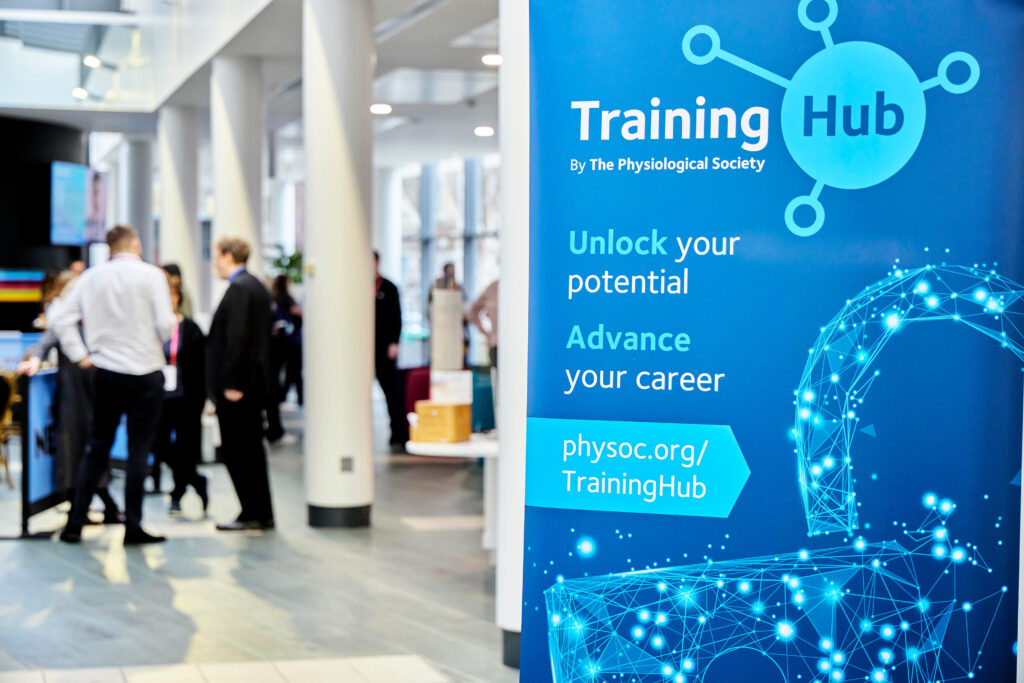
We have also launched an extensive new series of video resources for early career lecturers that we have received extremely positive feedback, as well as our new Physiology Grants Directory, a “go-to” place for finding physiology grant funding.
The launch of the Training Hub has resulted in a 337% increase in member usage of support resources. This has led to 67% of our of members reporting that we are important to their career development.
If you have not had time to do so already, I would encourage all members to visit our website and take a look at the Training Hub. And remember as we look towards 2024 the Training Hub is here to support you so, please share your suggestions on what we should focus on next.
Physiology Week: Celebrating the Science of Life
November marked the inaugural ‘Physiology Week,’ an extension of the longstanding Physiology Friday. With over 70 events globally—a substantial increase from Physiology Friday—we witnessed our members actively celebrating the science of life. From public lectures to coffee mornings, lab visits to school engagements, our diverse community showcased the essence of physiology with the #FacsOfPhysiology campaign, featuring over 200 physiologists celebrating the field’s diversity. We encourage you to put Physiology Week 2024 in your calendars, which will be running from 18 – 22 November 2024.
Publishing: Successfully navigating a complex landscape
Learned societies such as the Physiological Society are a critical part of the research landscape. The Society’s publishing arm plays a pivotal role in our mission by disseminating cutting-edge research. Throughout 2023, we persisted in upholding the status of our journals as leading authorities in the field of physiology, where any researcher is proud to publish.
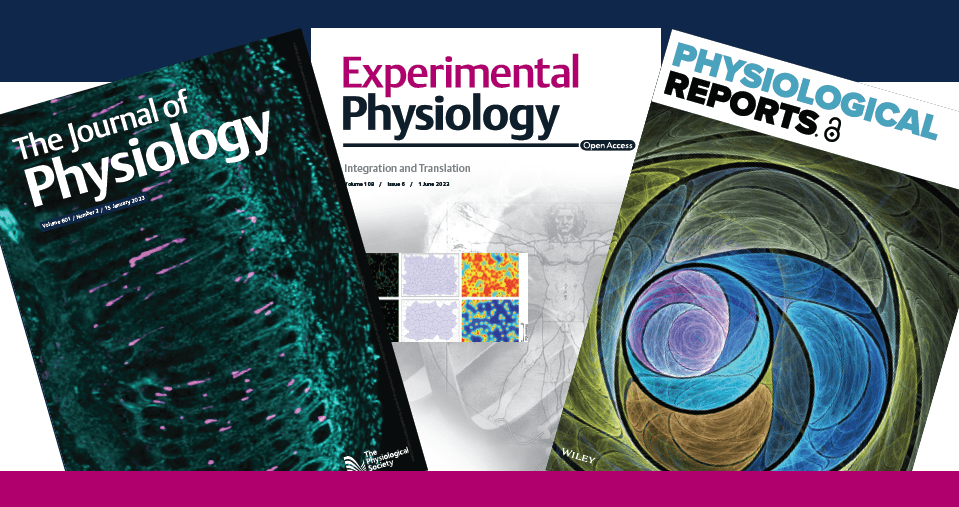
We use the surplus from our international publishing operation to support our physiology community, advance physiology and increase the influence and impact of the Society with the public, policymakers, funders, and other stakeholders. Our journal publishing program sustains our publications and supports services for members and the broader community. Adapting to the evolving landscape of academic journal publishing, especially with the rise of Open Access, has been a significant focus in 2023 and will continue to be in the coming year.
This year we welcomed back Honorary Fellow Kim Barrett as the Editor-in-Chief of The Journal of Physiology (JP). Through her dedication and hard work with the Editorial Board, as well as that of the previous Editor- in-Chief Peter Kohl, the Society’s pipeline of special issues has grown with five published in 2023 and another twelve currently in progress. JP is expected to conclude the year with an 18% increase in submissions and a 5% increase in published content.
This year, Experimental Physiology (EP) transitioned to Gold Open Access, with Society members now enjoying a 10% discount on Article Processing Charges. We have focused on streamlining authors processes by removing the requirement for the Statistical Summary Document requirement for both JP and EP and improving the referrals process for an enhanced author experience.
We were delighted that Physiological Reports has received its first Journal Impact Factor of 2.5 and, as of this month, Physiological Reports celebrates 10 years since its launch as a Gold Open Access journal in 2013. The celebration will run from 1 December 2023 to 30 November 2024 with a number of celebratory editorials throughout the year.
Conferences: A new era of engagement
In 2023, we introduced our new two-day meeting program, featuring eight events across the year. This format allows us to run more events to support members: the themes are proposed by members for members and their community. This provides an opportunity for a more focused meeting where researchers can hear the latest research in their field, network with both early career and established researchers and forge new collaborations. Members are fully supported in running these events by Society staff who are responsible for the logistics, operations, and budget. Highlights included meetings on Membrane Transport in St Andrews, Cross-Talk of Cells in the Heart in Liverpool, and Regenerating the Cardiovascular System in Oxford.
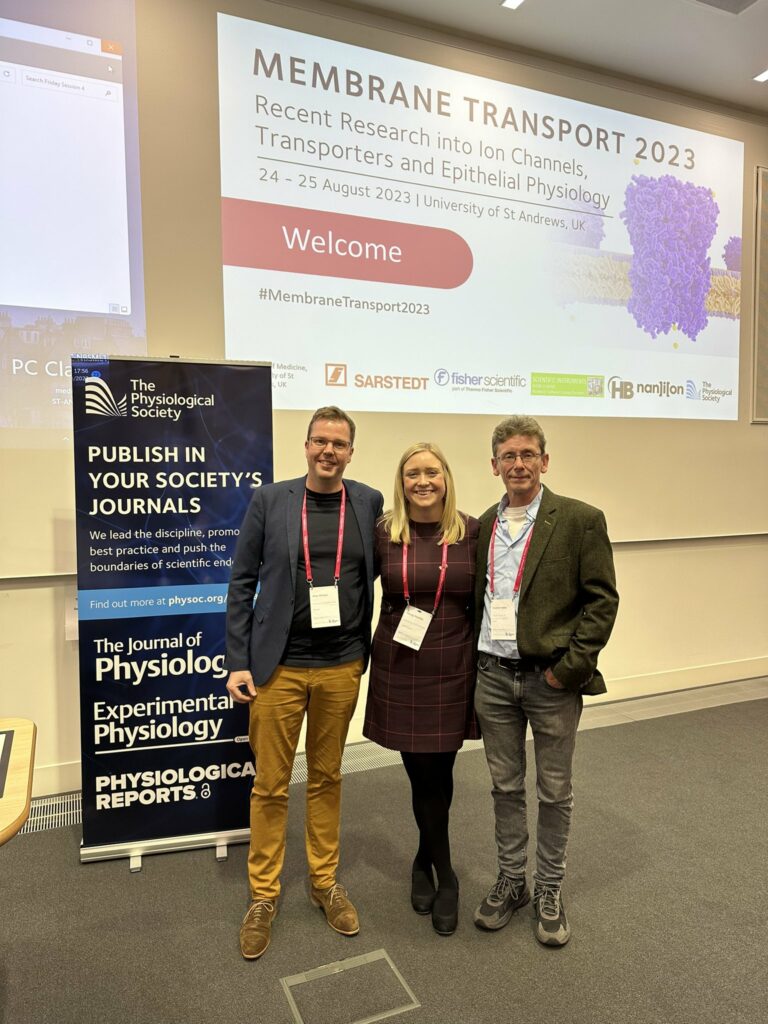
Supporting the evolving landscape of post-COVID teaching, we hosted a dedicated teaching meeting, fostering the sharing of best practices across academia and generating ideas to implement in the future.
Excitingly, 2024 promises our most extensive meeting program ever, including ‘Physiology in Focus 2024,’ a joint meeting with the Scandinavian Physiological Society in Newcastle and nine two-day scientific meetings – check out our website for further details.
Raising the Profile of Physiology: Impactful Policy Work
As part of our charitable objects through our policy work, we seek to create and sustain an environment in which the physiological sciences can thrive by raising the profile of physiology and advocating for the interests of our members. with funding organisations, higher education institutions and government.
In 2023, we undertook six policy projects spanning topics such as ‘the future of REF,’ healthy aging, and AI and health. Our policy work is having clear impact- notably, eight out of 10 recommendations from our report on interdisciplinary research and REF were adopted, to some extent, by Research England for REF2028.
We actively supported the new research bill in the Republic of Ireland and collaborated with the Royal Society of Edinburgh in the Scottish Parliament. In November, we launched a new report on physiology and heat at a government conference and then in Parliament, uniting the Society with Wellcome, the Faculty of Public Health, and many others.
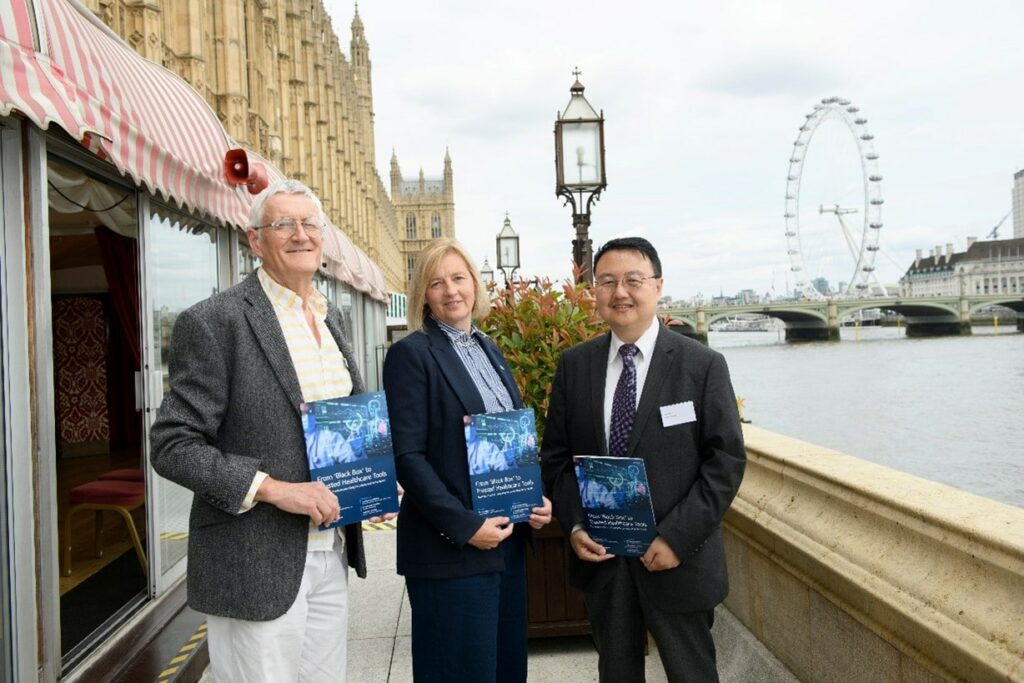
Building on strong foundations for a bright future
Building on the strong foundations of 2023 then I am sure that 2024 is set to be even better. With our largest-ever conference program, shaping the future of physiology in our journals, influential policy initiatives, and a warm welcome to new members, it is an ideal time to get involved if you are not already a member or if you were in the past.
Let us continue shaping the future of physiology together.


